| |
|
| |
|
|
| |
Taiwan Offered an Unprecedented Training Workshop on China’s Green Food Practices |
|
| |
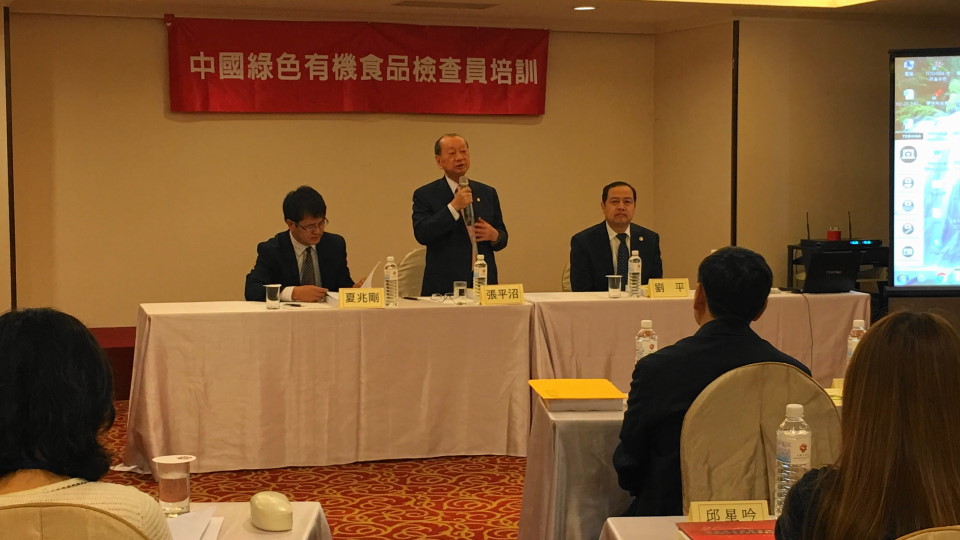 |
| China-based CGFDC’s Executive Deputy Director Liu delivers his opening speech at the workshop. |
|
|
|
| |
On November 16, 2015, the Taiwan-based Chinese Commercial & Industrial Coordination Society (CCICS) launched a three-day “Organic Eco-food Inspector Training Workshop for Chinese Regulatory Compliance” in Sunworld Dynasty Hotel Taipei’s conference room, where prominent experts from subordinate agencies of China’s Ministry of Agriculture (MOA), namely the Green Food Management Office, China Green Food Development Center (CGFDC) and China Organic Food Certification Center (COFCC), offered guidance to 40 Taiwanese food business owners and technologists. The workshop was hosted by CCICS Chair Chang Pen-Tsao.
The ever-rising standard of living, said Chang in his opening speech, has sparked trends toward wellbeing, dietary safety and green foods produced in an unpolluted, uncontaminated and natural manner. With brilliant sales prospects worldwide, such eco-foods increasingly dominate the developing countries’ exports to their developed peers. Aiming to achieve Lifestyles of Health and Sustainability (LOHAS) island-wide, the Taiwanese government has lately offered a combination of incentives, grants, training and technical support to facilitate a shift to organic farming, already declared a component of the national vision for a “Golden Decade.”
Citing the rise of “quality agriculture” and intensifying trade ties between China and Taiwan, Chang noted that seizing opportunities in China’s organic eco-food sector is Taiwanese companies’ first step to, and a key factor of, its sustainable presence in China’s high-end food market.
To bolster the China market share of premium local products, CCICS invited senior professionals from China’s green food authorities to the training workshop, the first of its kind in Taiwan. By directly communicating with China’s organic food certification bodies, Taiwanese workshop attendees can get a quick grasp of the regulatory requirements and opportunities associated with finding a profitable niche in China’s vast domestic market. |
|
| |
|
|
| |
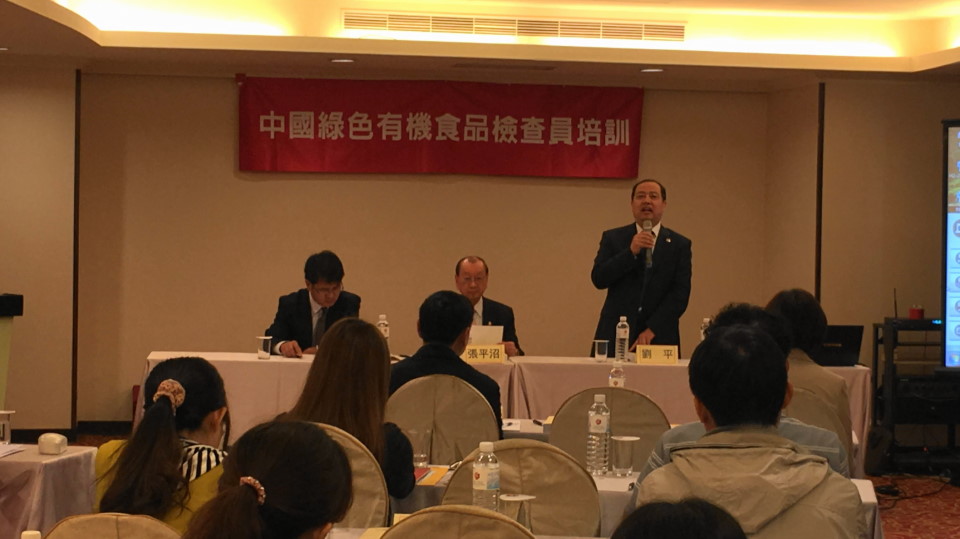 |
| CCICS chairman Chang hosts the training workshop and gives opening remarks |
|
|
|
| |
For more than two decades, organic/green products have emerged as a fast-growing, flagship branch of China’s safe, upscale farm produce and processed food industry, said CGFDC Executive Deputy Director Liu Ping in his opening remarks. China, as the world’s most populous nation, will see an explosive surge in domestic demand for organic green food within the next 3 to 5 years, he predicted. China’s organic food statistics in 2013 indicated a 150% sales growth from 2007, with the output increasing by 36.6% from the 2012 level, and total demand rising 20% annually. It is therefore imperative that Taiwanese firms acquire correct knowledge of China’s quality control and certification programs for organic green foods, so as to set up operations across the strait effectively and quickly. |
|
| |
|
|
| |
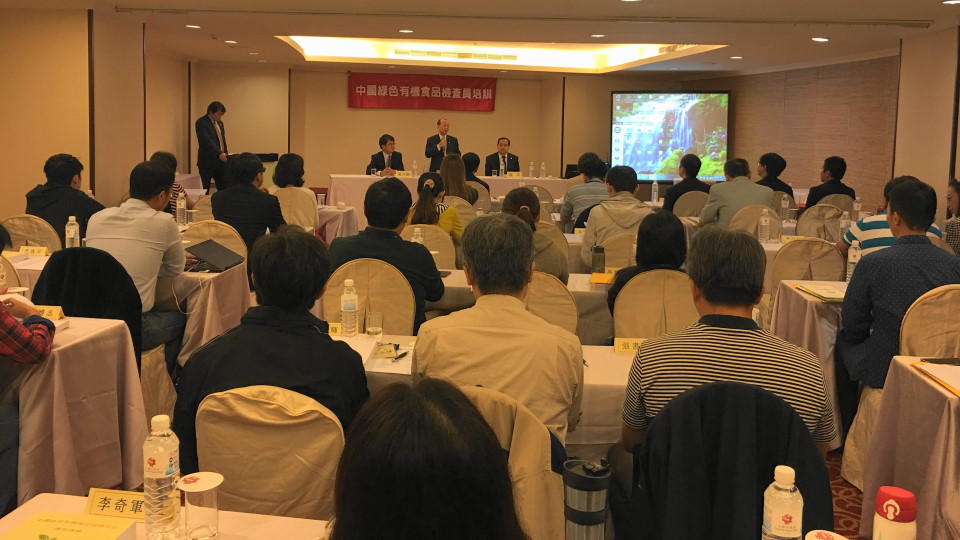 |
| Food industry representatives from across Taiwan exchange views on China’s high-end food industry. |
|
|
|
| |
The November 16th-18th workshop comprised training activities and lectures regarding China’s green food regulations, technologies and real-life marketing problems. While Yu Hanxin, the lecturer in charge of labeling management at CGFDC, explained China’s regulatory requirements for eco-friendly foods, produce safety and green food labeling, his colleague and deputy head of CGFDC’s technology unit, Chen Qian, shed light on the Chinese national standard systems for safe and green foods. Chen Xi, a certification staffer also from CGFDC, outlined the procedure and rules for reviewing China’s green food label applications, besides the code of conduct, registration and management of on-site green food inspectors. Li Jian, deputy head of CGFDC’s quality control operations, talked about how the Chinese green food label is applied and managed, as well as the duties of relevant monitoring and internal inspection personnel. The Beijing-based COFCC Deputy Director Xia Zhaogang shared his thoughts on the present and future of China’s organic food market and certification program (including requirements, procedure and fee structure details). His coworker and COFCC’s certification director, Diao Pinchun, explored how the management and implementation of organic product certification are regulated, and also how China enforces its national standard for such products (GB/T 19630-2011) and labeling rules. These lecturers won unanimous acclaim from the audience for their theoretically sound, diversified case studies and extensive debates on various aspects of China’s green food sector, from production technologies to sales, logistics and branding.
Proceeding in an orderly manner, the three-day workshop saw trainees fervently take notes and keep asking questions even after the lectures were finished. |
|
| |
|
|
| |
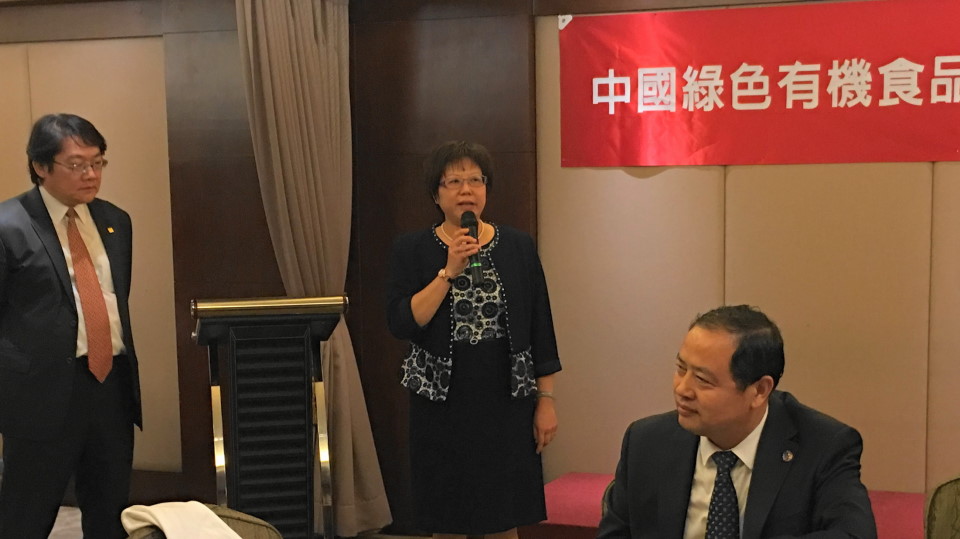 |
| Taiwanese COA Chief Secretary Dai (middle) was among the workshop guests. |
|
|
|
| |
At the invitation of CCICS, officials from Taiwan’s cabinet-level Council of Agriculture (COA): Chief Secretary Dai Yu-yan and Li Tsang-Lang and Lin Li-fang, the latter two serving as the Agriculture and Food Agency’s director and deputy director, respectively, guided the trainees as well as China’s CGFDC delegates through the Taiwanese eco-conscious/organic farming landscape, which included management strategies, produce safety practices and oversight mechanisms. |
|
| |
|
|
| |
TOP |
|
| |
|
|
| |
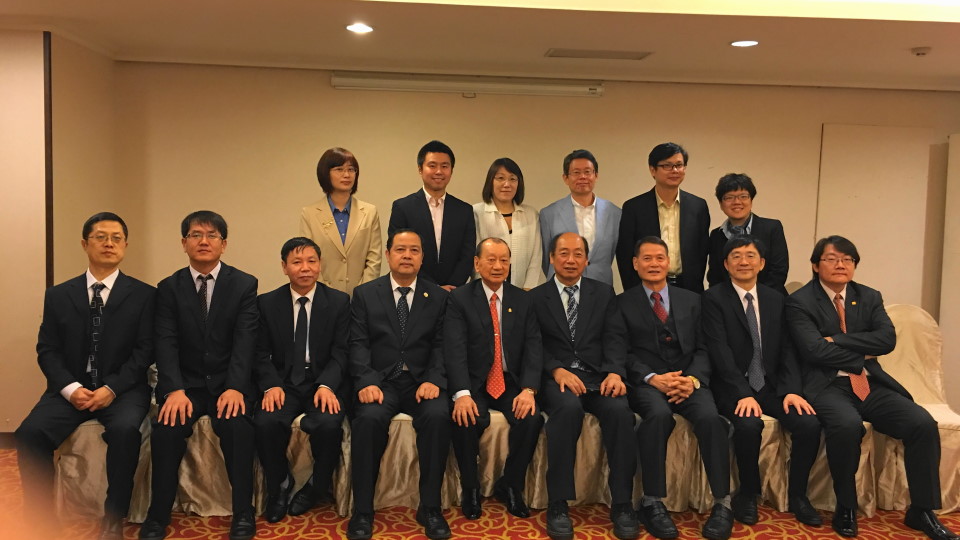 |
| COA’s Agriculture and Food Agency Director Li graces the workshop. |
|
|
|
| |
This training workshop on China’s green food practices, the first of its kind in Taiwan, proved fruitful as it successfully engaged industry insiders, authorities and academia from both sides of Taiwan Strait. |
|
| |
|
|
| |
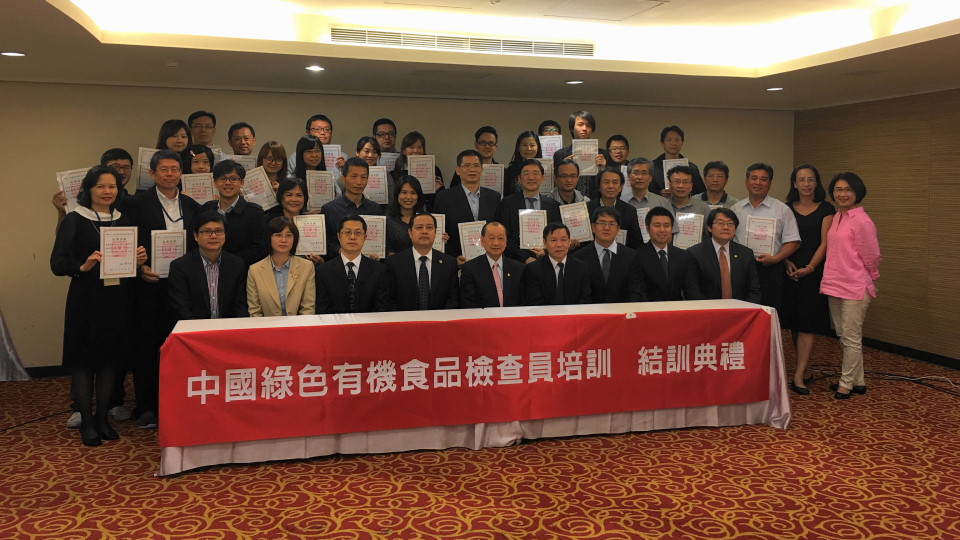 |
| The fruitful workshop on China’s green food practices, the first of its kind in Taiwan, engages industry insiders, authorities and academia from both sides of Taiwan Strait. |
|
|
|
| |
Led by CGFDC’s Executive Deputy Director Liu Ping, the Chinese delegation visited Geow Yong Tea Hong for its cloud-based Taiwanese tea traceability system and studied a similar solution (for processed foods) at HSIN TUNG YANG. |
|
| |
|
|
| |
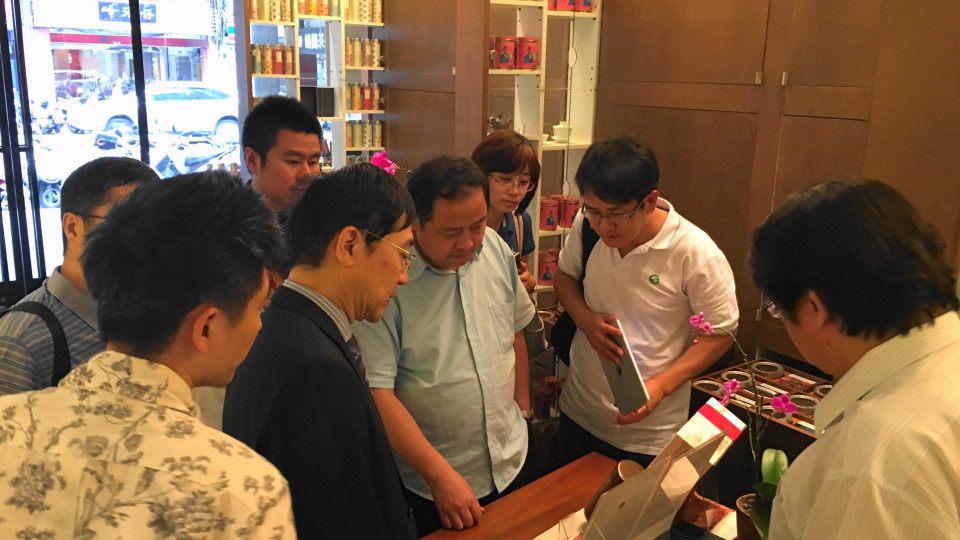 |
| Chinese delegates led by CGFDC’s Executive Deputy Director Liu Ping enthusiastically study a cloud-based traceability system at Geow Yong Tea Hong. |
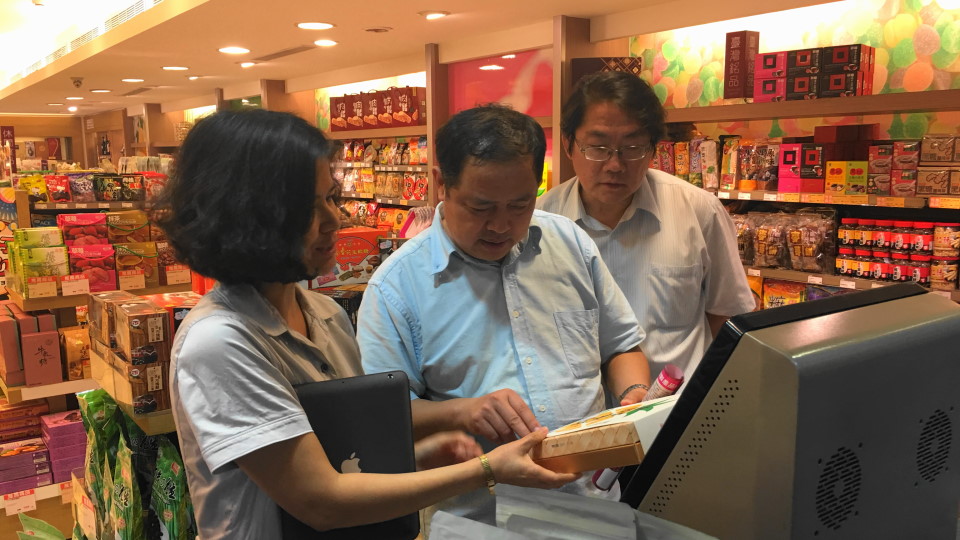 |
| Chinese delegates take a close look at HSIN TUNG YANG’s processed food traceability system. |
|
|
|
| |
The Chinese delegates went on to explore the manufacturing/processing operations at the Rice Development Association R.O.C. and an Alishan high-mountain tea plantation. They also stopped by the Ever Rich Group, Vigor Kobo, Long Kow, Geow Yong Tea Hong, HSIN TUNG YANG, Sagittarius Life Science and its affiliate Yogi House, The Taiwan Rice Elegance Rice Gift, and AGV Group and its affiliate Taiwan First Biotechnology. By meeting with owners or technical staff of these businesses and organizations, the Chinese delegates delved into quality control, marketing and other aspects of Taiwanese food industry. |
|
| |
|
|
| |
TOP |
|
| |
|
|
| |
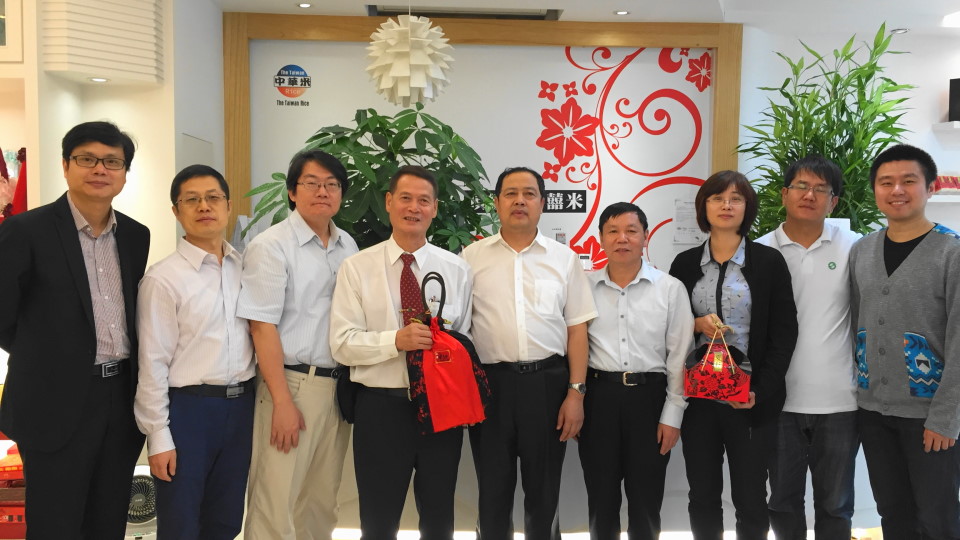 |
| Chinese delegates meet with Zeng Jin-fa, who chairs the Rice Development Association R.O.C. |
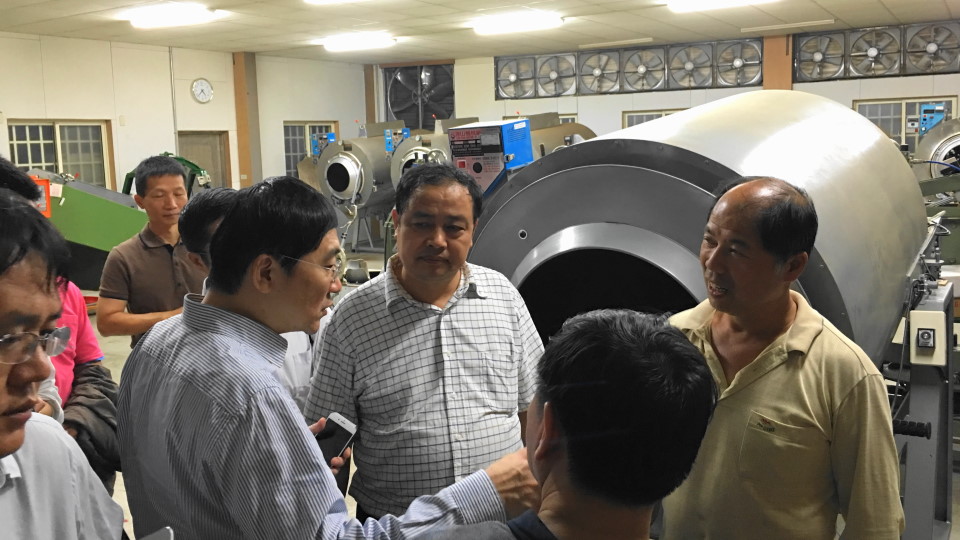 |
| The Chinese delegation observes how high-mountain tea is manufactured and processed at an Alishan plantation. |
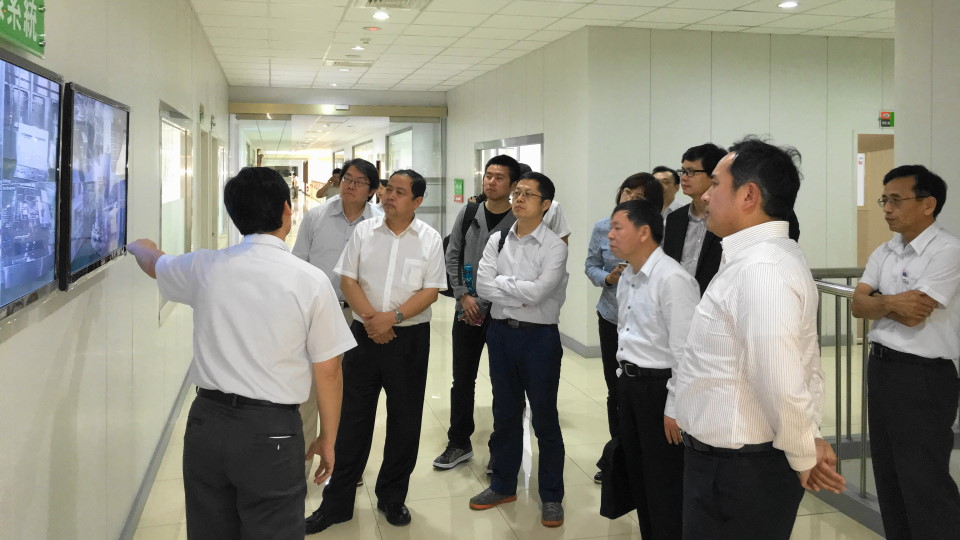 |
| The Chinese delegation was inspired by how products are processed at AGV Group and its affiliate, Taiwan First Biotechnology. |
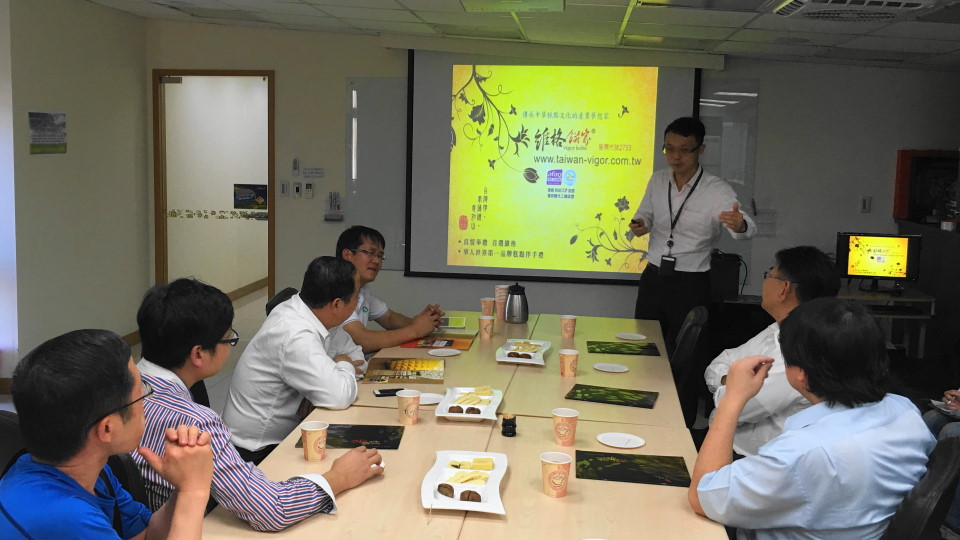 |
| Chinese delegates were given a briefing at Vigor Kobo, a renowned Taiwanese bakery. |
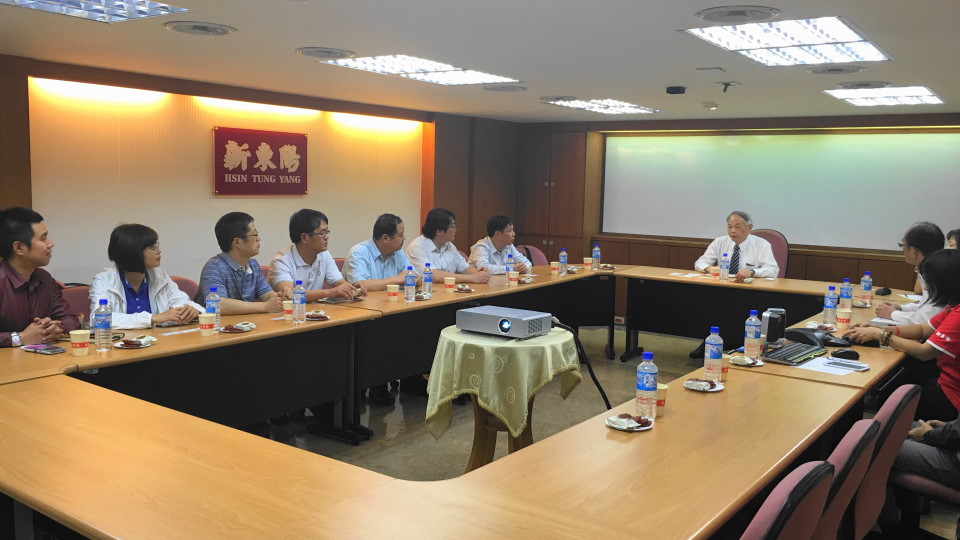 |
| The Chinese delegation visits HSIN TUNG YANG. |
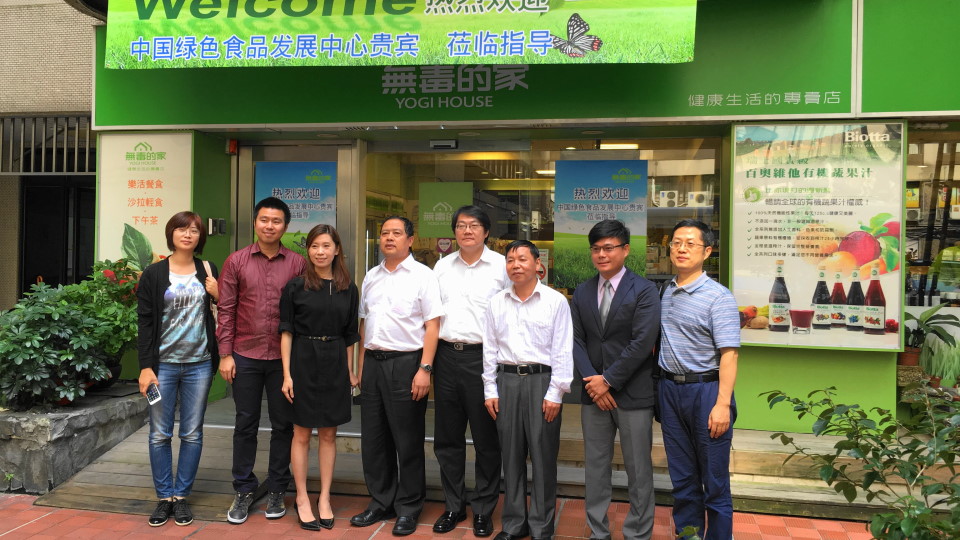 |
| The Chinese delegation spent some time at Sagittarius Life Science and its affilitate, Yogi House. |
|
|
|
| |
|
|
| |
TOP |
|
|
| |
|
| |
|